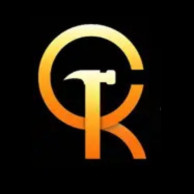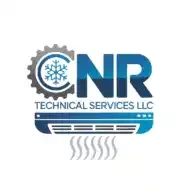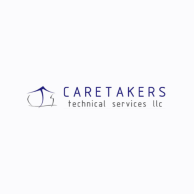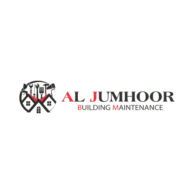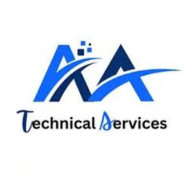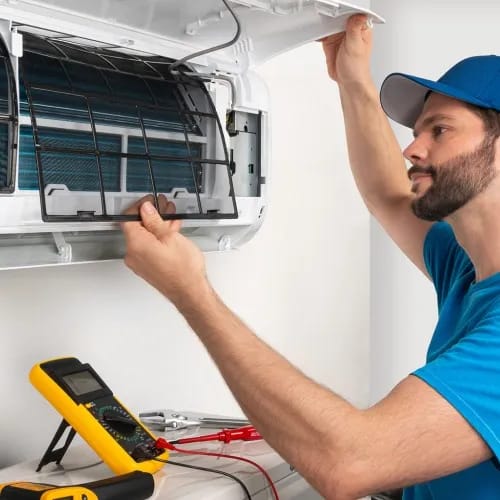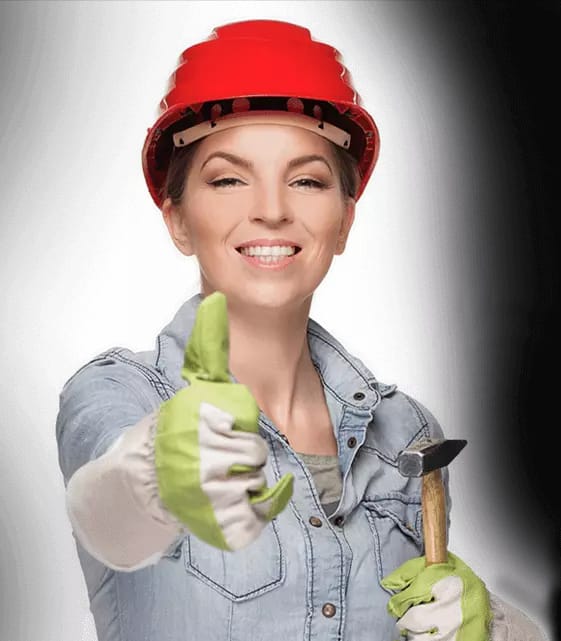Top 10 Leak Repair Specialist Services in Dubai
Leak Repair Specialist Services in Dubai provide expert solutions to address leaks in your home, office, or industrial buildings. These services specialize in identifying, repairing, and preventing leaks, ensuring the integrity and safety of your plumbing systems. Whether it’s a small pipe leak, a roof leak, or a large water leakage issue, specialists in Dubai are trained to resolve these problems efficiently. Leak repair is a crucial aspect of maintaining a building’s infrastructure, and Dubai’s professional services are dedicated to offering reliable and swift solutions.
Leak Repair Specialist Services are tailored solutions aimed at detecting and repairing various types of leaks within a property. These leaks could be water leaks, gas leaks, or even leaks in walls, ceilings, and floors. A specialized leak repair team uses advanced equipment to locate and fix the source of leaks in pipes, faucets, roofs, or other plumbing systems. Leak repair specialists are trained to handle emergency situations, offering quick responses to prevent further damage.
· Mujahid Ali Ghulam Technical Services
Prime Business Center, Jumeirah Village Circle, Near Luxe Signature Holiday Homes LLC, Jumeirah Village, Dubai, 21537
· Binafix Technical Services LLC
F 74, Ahmed Building, 26th, Near Muraqqabat Police Station, Hor Al Anz, Dubai
· Ryan Technical Services
Al Khail Mall, Al Quoz, Near To NMC Amala Medical Centre, Al Quoz 4, Dubai
· KVC Technical Services Co LLC
Office 0438, Hamsah - A Building, 3 A Street, Near To Ansar Gallery Building, Al Karama, Dubai
· Ulti Trend Technologies
Office 505, Capital Golden Tower, Rich Rose In Same Building, Business Bay, Dubai, 450535
· Jashim Anjom Technical Services
Office No 2002, Al Qusais 2, Business Tower, Al Qusais, Dubai, 54545
· Mainstream Technical Services LLC
Obaid Mehayer Obaid Bin Suroor Warehouses, Dubai Investment Park 2, Behind Pepsi, Dubai Investment Park 2, Dubai
· Al Batal Al Saed Interior Decoration LLC
101, Shakhboot Building, Damascus Street, Opposite Emirates Building, Al Qusais Industrial Area 1, Dubai
· Ahmed Amin Technical Services
Shop No:6, Al Giryani Building, Al Nakheel, Near Fonax Hotel, Deira, Dubai
· Creative Space Interiors
Office 302, Al Raffa Building, Opposite New Grand Shopping Mall, Al Mankhool Road, Dubai
Water Leak Detection Works: Complete Guide in Dubai
Water leaks can cause significant damage to your property if left undetected. Water leak detection works involve identifying hidden leaks in pipelines, plumbing systems, or infrastructure before they escalate into larger issues.
Water leak detection is the process of identifying leaks in water systems, whether within residential or commercial buildings, or even large industrial complexes. Leaks can occur in various areas, such as underground pipes, walls, ceilings, or plumbing fixtures. Early detection is essential for preventing water damage, mold growth, and high water bills.
Types of Water Leak Detection Methods in Dubai
Water leak detection methods are essential for identifying leaks early and preventing water damage. Here are some common types of water leak detection methods:
1. Acoustic Leak Detection
- How it Works: This method uses sound to detect leaks. Acoustic sensors listen for the sound of water escaping from pipes.
- Applications: Commonly used in residential and commercial plumbing systems. It is particularly effective for underground or hidden leaks.
- Advantages: Non-invasive and highly accurate in pinpointing the leak location.
- Disadvantages: Can be less effective in noisy environments.
2. Infrared Thermography
- How it Works: Uses thermal imaging cameras to detect temperature variations that may indicate water leaks.
- Applications: Often used for detecting leaks in walls, ceilings, and roofs.
- Advantages: Can detect leaks behind surfaces without damaging the structure.
- Disadvantages: Requires specialized equipment and training.
3. Pressure Testing
- How it Works: Involves increasing the pressure within a water system and monitoring for pressure drops, which indicate leaks.
- Applications: Typically used in new plumbing installations or after repairs.
- Advantages: Simple and effective for detecting major leaks.
- Disadvantages: Less useful for pinpointing small or hidden leaks.
4. Dye Testing
- How it Works: A colored dye is introduced into the water system, and leaks are identified by observing where the dye exits.
- Applications: Commonly used to detect leaks in pools, toilets, and underground pipes.
- Advantages: Easy to use and inexpensive.
- Disadvantages: Limited to visual inspection and small-scale applications.
5. Moisture Sensors
- How it Works: Sensors are placed around areas prone to leaks (e.g., under sinks, near water heaters) to detect the presence of water.
- Applications: Useful in homes and commercial buildings to monitor for leaks in vulnerable areas.
- Advantages: Provides real-time monitoring and alerts.
- Disadvantages: Limited to the areas where sensors are installed.
6. Flow Meters
- How it Works: Monitors the flow of water through a system, detecting unusual or continuous water flow that indicates a leak.
- Applications: Common in residential and commercial buildings.
- Advantages: Can detect leaks early and monitor overall water usage.
- Disadvantages: May not be as effective for detecting small leaks.
7. Soil Probes
- How it Works: Used to measure soil moisture levels around underground pipes. An increase in soil moisture may indicate a leak.
- Applications: Primarily used for underground leak detection, such as in irrigation systems.
- Advantages: Effective for locating underground leaks.
- Disadvantages: May require excavation or additional equipment for precise detection.
8. Tracer Gas Detection
- How it Works: A harmless gas (like hydrogen or helium) is introduced into the water system. The gas escapes through leaks, which are then detected using special sensors.
- Applications: Often used for detecting leaks in pressurized systems.
- Advantages: Highly accurate for detecting small leaks.
- Disadvantages: Requires specialized equipment and expertise.
9. Smart Water Leak Detectors
- How it Works: These are IoT-enabled devices that monitor water systems and send alerts to homeowners or facility managers when a leak is detected.
- Applications: Widely used in smart homes and commercial buildings.
- Advantages: Provides real-time alerts and can integrate with home automation systems.
- Disadvantages: Initial cost may be higher, and they rely on internet connectivity.
10. Visual Inspection
- How it Works: Involves physically inspecting pipes, fittings, and joints for signs of leaks, such as water stains, mold, or corrosion.
- Applications: A simple method used in homes, commercial properties, and industrial settings.
- Advantages: No specialized equipment needed, and can spot obvious leaks.
- Disadvantages: Limited to visible leaks and may not detect hidden or small leaks.
Why is Water Leak Detection Important?
Water leaks, when left unattended, can cause severe structural damage and lead to costly repairs. Leak detection helps to:
- Preserve water resources by preventing wastage.
- Minimize property damage caused by water infiltration.
- Reduce water bills from unnoticed leaks.
- Prevent mold and mildew growth, which can impact health.
Common Signs of Water Leaks in Dubai
Water leaks can cause significant damage if not identified and addressed early. Here are some common signs of water leaks in homes and buildings:
1. Unusually High Water Bills
If your water usage hasn’t changed but your bill has increased significantly, it could be a sign of an undetected leak.
2. Damp or Wet Spots
Patches of dampness, wet spots, or water stains on walls, ceilings, or floors are clear indicators of a water leak.
3. Mold or Mildew Growth
Excess moisture from leaks can lead to the growth of mold and mildew, which thrives in damp environments. This often produces a musty smell.
4. Peeling or Bubbling Paint/Wallpaper
Water behind walls can cause paint or wallpaper to peel, crack, or bubble.
5. Low Water Pressure
A sudden drop in water pressure could indicate a leak in the plumbing system, particularly if it occurs in more than one fixture.
6. Sounds of Running Water
If you hear water running even when no taps or appliances are in use, it could be a sign of a hidden leak.
7. Wet or Spongy Flooring
Flooring that feels unusually soft, spongy, or damp could indicate a leak beneath the surface, particularly in bathrooms or kitchens.
8. Unexplained Puddles
Puddles of water in areas without a clear source (such as under sinks or near appliances) can signal a leak.
9. Discolored or Warped Flooring
Wooden floors that warp or laminate that starts to lift can be caused by prolonged water exposure from leaks.
10. Increased Humidity
Higher indoor humidity, especially in rooms that are normally dry, might be due to water seeping from a hidden leak.
11. Unpleasant Odors
Water leaks that are not easily visible can still be detected by a musty or earthy odor, often resulting from stagnant water or mold growth.
12. Cracks in the Foundation
Water leaks underground can seep into a building’s foundation, causing cracks, sinking, or shifts in the structure.
Benefits of Professional Water Leak Detection Services
Professional water leak detection services provide numerous benefits that can save homeowners and businesses time, money, and stress. Here are the key advantages of using these services:
1. Accurate Leak Detection
Professionals use advanced tools and technology, such as infrared cameras, acoustic listening devices, and moisture meters, to precisely locate leaks, even those hidden behind walls, floors, or underground. This accuracy reduces the guesswork involved in finding the source of a leak.
2. Minimizes Property Damage
Quick and precise leak detection prevents the need for extensive exploratory damage, such as tearing up walls or floors to locate the issue. By identifying the exact source of the leak, repairs can be done with minimal disruption to your property.
3. Prevents Mold and Mildew Growth
Undetected water leaks can lead to the growth of mold and mildew, which can cause health problems and damage property. Early detection and repair by professionals prevent this from happening, ensuring a healthier indoor environment.
4. Reduces Water Bills
Leaks, especially slow or hidden ones, can cause a spike in water usage, leading to higher bills. Professional detection can quickly identify leaks, helping you save money on utility costs by addressing the problem early.
5. Protects Structural Integrity
Persistent water leaks can weaken the foundation, walls, and structural components of a building, causing serious long-term damage. Professional leak detection ensures that leaks are addressed before they compromise the structural integrity of your property.
6. Prevents Further Damage
Timely detection and repair of leaks stop water from spreading to other areas of the property, protecting electrical systems, flooring, and furniture from water damage and preventing more costly repairs down the road.
7. Saves Time and Effort
Identifying leaks yourself can be time-consuming and inefficient. Hiring professionals saves you the time and effort of trying to locate the problem on your own, allowing experts to handle the situation effectively.
8. Increases Property Value
Regular maintenance, including professional leak detection, can help preserve the value of your property by preventing damage. If you're planning to sell your property, having records of regular leak inspections can be a selling point for potential buyers.
9. Prevents Health Hazards
Water leaks, if left undetected, can lead to contaminated water, mold growth, and compromised air quality, all of which pose serious health risks. Professional leak detection helps eliminate these hazards, ensuring a safe living or working environment.
10. Comprehensive Diagnosis
Professionals often provide a full assessment of your plumbing system, which can help identify potential weak points or future issues, allowing you to take preventive measures before problems escalate.
11. Cost-Effective Solutions
While professional services may have an upfront cost, the long-term savings from preventing extensive damage, reducing water bills, and avoiding costly repairs make it a cost-effective solution in the long run.
12. Peace of Mind
Knowing that your property has been thoroughly inspected by experts and that any leaks have been located and repaired gives you peace of mind. This assurance is especially valuable for business owners or homeowners who want to avoid unexpected emergencies.
How Does Water Leak Detection Work?
Water leak detection typically starts with an assessment of the building and the areas where leaks are suspected. Depending on the size of the property and the extent of the issue, different methods, such as acoustic or infrared detection, are used to pinpoint the exact location of the leak. Professionals then fix the issue with minimal disruption to the property.
Frequently Asked Questions About Water Leak Detection Works in Dubai
Q1: What causes water leaks?
Answer: Water leaks can be caused by several factors,
including old or corroded pipes, loose plumbing joints, poor installation,
excessive water pressure, and natural wear and tear. Ground movement, extreme
weather, or nearby construction can also damage water lines.
Q2: How can I tell if I have a hidden water leak?
Answer: Signs of hidden water leaks include an unexpected
spike in water bills, sounds of running water, reduced water pressure, or damp
spots on walls or ceilings. If you suspect a leak, it’s best to contact a
professional for a thorough inspection.
Q3: How long does water leak detection take?
Answer: The time required for leak detection varies
depending on the size of the property and the location of the leak. Small
residential leaks can often be detected within an hour, while larger, more
complex leaks may take longer.
Q4: Is water leak detection expensive?
Answer: The cost of water leak detection depends on the
method used and the complexity of the leak. While professional services have an
upfront cost, they can save you money in the long run by preventing extensive
water damage and high water bills.
Q5: Can I perform water leak detection myself?
Answer: Some minor leaks may be detected visually by
homeowners, but hidden or underground leaks require specialized tools and
expertise. Hiring a professional ensures accurate detection and minimal
disruption.
Q6: Will leak detection cause damage to my property?
Answer: Most modern leak detection methods, such as
acoustic and infrared detection, are non-invasive, meaning they do not require
digging or cutting into walls or floors. Professionals can pinpoint leaks
without causing damage to your property.
Q7: How can I prevent water leaks?
Answer: Regular maintenance of plumbing systems, checking
water pressure, and inspecting visible pipes for wear and tear can help prevent
leaks. Additionally, it’s a good idea to install a water leak detection system
to alert you to potential leaks early.





